English Edition

- By CNI
- Category: English Section
- Hits: 763
CNI News
6 January 2024
Myanmar people, holding refugee cards, who are arrested in Malaysia, are finding it difficult.
Because the UNHCR is delaying to reply whether evidence documents are correct or not, the refugees have to be staying in the detention camps unless the UNHCR reply, those who are helping in the affairs of refugees told CNI News.
As the response from the UNHCR side is delayed for a certain period of time, as long as the UNHCR has not replied, UN refugee card holders who are arrested have to be staying in the detention camps, U Nyi Nyi Lwin, director general of the Center for Arakan Refugees, told CNI News.
" It depends on how soon the UNHCR responds or how soon the Malaysian police and immigration department inform the UNHCR of the detainees. Some UN refugee card holders who were arrested had to stay in the detention camps for one to two weeks. UNHCR staff need to work outside the office. If they are waiting for the time when the police and immigration department or refugee organizations like us will inform, it may take long. We, refugee organizations, inform the UNHCR by phone or email if the UN refugee card holders are arrested. They usually don't reply. We have to solve 95 percent of the cases on our own after meeting the police and immigartion department." he said.
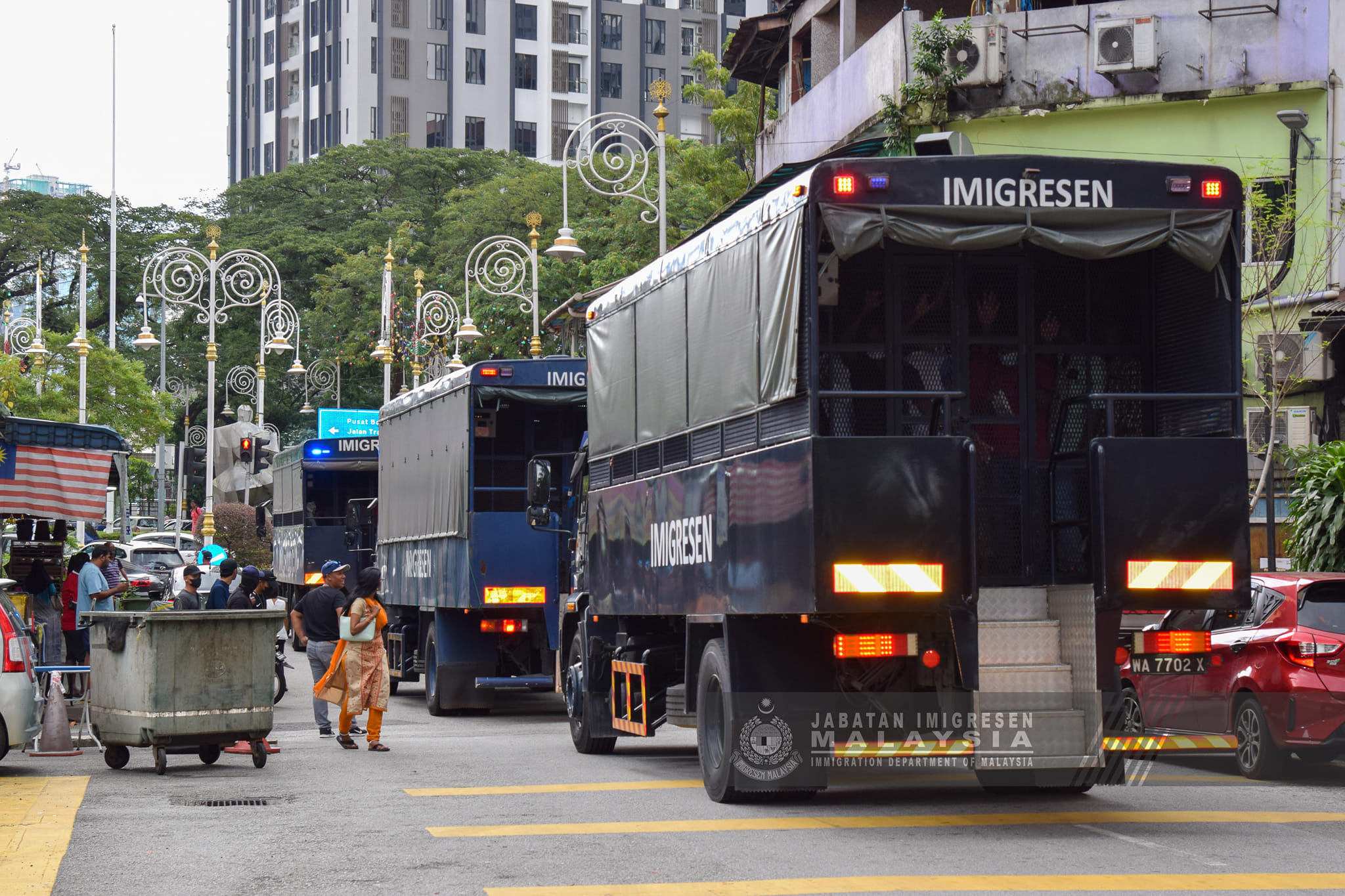
Police vans in which illegal foreigners are taken away
The UNHCR staff personally come inspect whether it is correct or not and if the detainees are real holders of the UN refugee cards, they will be released at once - the process like this would solve the problem quickly, pointed out Myanmar people in Malaysia.
At present, checks and arrests are being conducted in Malaysia almost everyday and many Myanmar citizens have been arrested, according to Myanmar people in Malaysia. Due to arrests and inspection in Malaysia in 2022-2023, detention camps and rooms were crowded with detainees. So, detention camps have been expanded reportedly.
Lots of policemen are currently arresting and so are immigration officers, Hmwar Michael living in Malaysia told CNI News.
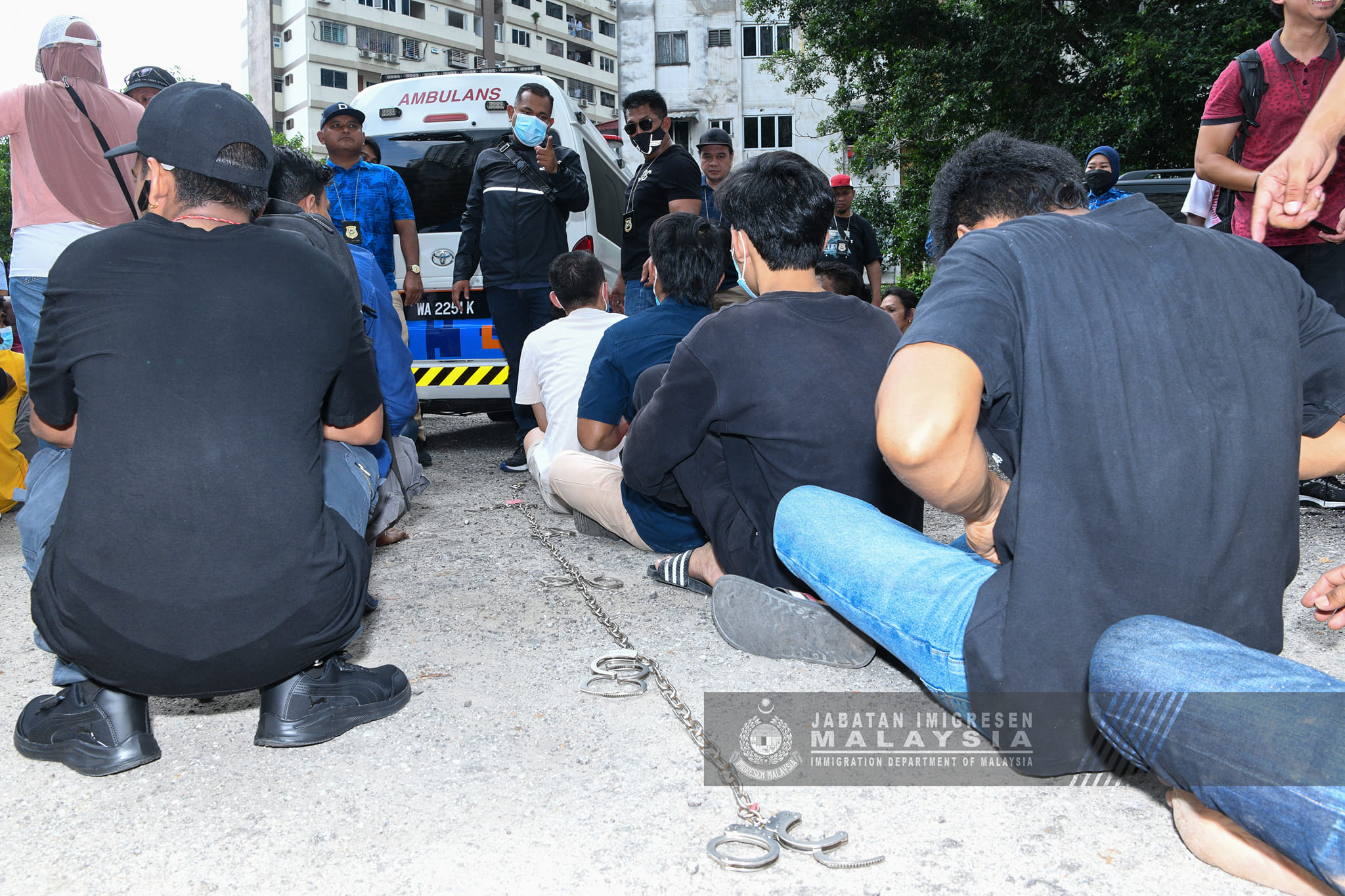
Those detained in Malaysia
" If the policemen arrest the refugees, those arrested are taken to the police stations. And then, they are remanded in custody for two weeks. After that, evidence documents are inspected and they are handed over to the police. If the immigration officers arrest the refugees, those arrested are placed in the detention camps. And then, they are brought to court. They have to go to court from the detention camps. If they are found guilty, the court decides to send them to jail. If the police arrest, the problem might be solved at the police station. But it's not easy for you to solve the problem at the immigration department. If you don't have any evidence documents after the immigration officers arrested, you might have to stay at the detention camp for one to two months and you could be sentenced to at least three months. And then, you will be sent back to your native country. But if you can negotiate at the police station, it could be a bit convenient for you. Overstayers could have 30 percent of hope." he said.
Moreover, those detained were permit holders and depending on their employers, they could be released reportedly.
Because the deadline to apply for a Ricarlibraci permit has passed, more and more checks and arrests could increased, said Myanmar citizens in Malaysia.

- By CNI
- Category: English Section
- Hits: 453
CNI News
6 January 2024
EAOs have advised the State Administration Council to form a transitional government after the six month extention for the state of emergency expire on 31st January 2024, Col.Khun Okka, an EAO leader, told CNI News.
Their EAOs did not advise to form a coalition government but the EAOs advised to form a transitional government only, he said.
" It was wrong. It was just misinterpretted. We didn't mean a coalition government. We meaned the transitional authority. Its responsility is to supervise the transitional period. It is not even called a government. There were transitional authorities in the East Timor ans Nepal including other countries. Transitional Authority is included in our EAOs' roadmap." he said to CNI News.
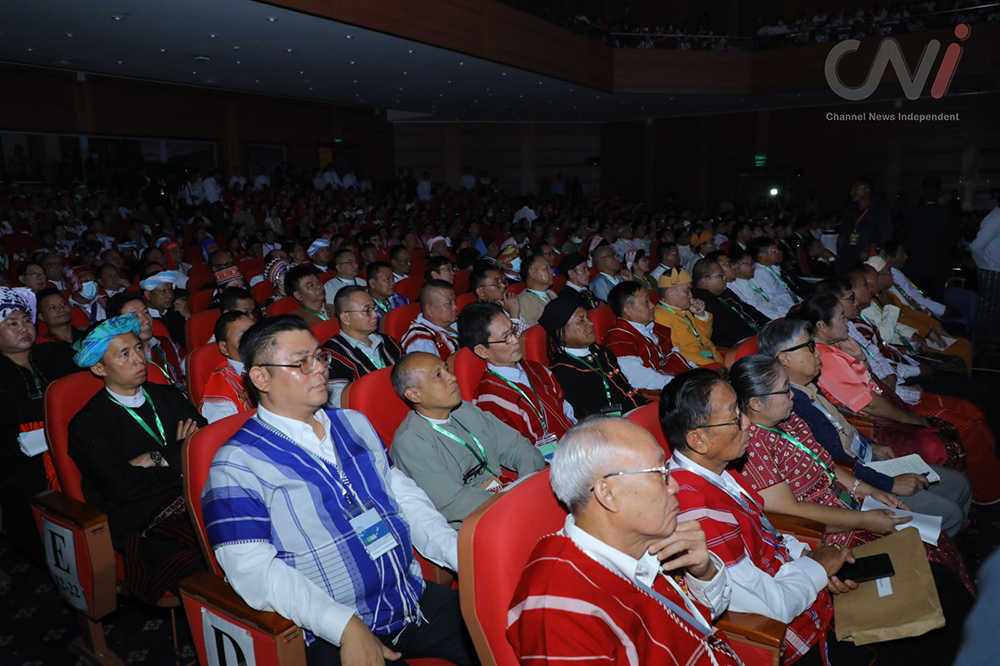
While seeing representatives from EAOs
The Tatmadaw will have already taken the power for three years on 1st February, 2024 after declaring the state of emergency on 1st February 2021.
After January 31st, a transitional government or a coalition government may appear, which there are conversations among the political circles.
If the SAC formed a coalition governmant at present, that government would be of its choice, U Myo Kyaw, the spokesperson of the Uniuted Nationalities Alliance (UNA) told CNI News.
" Even If a coalition government arose, it would be the SAC's puppet government, I think because there was not a government that allowed the same power levels in the history of our country." he said.
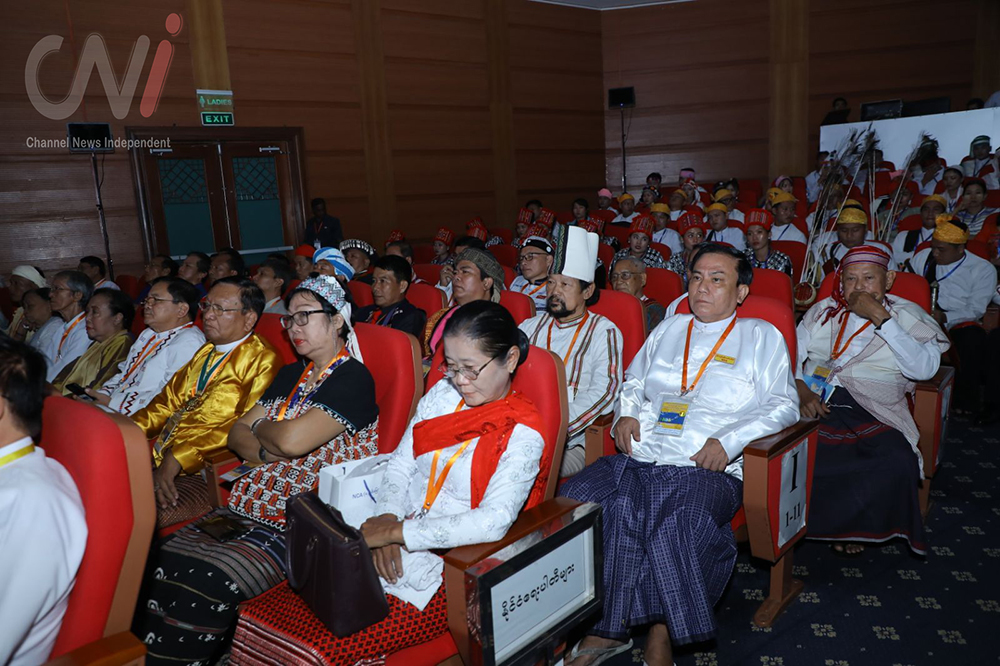
While seeing representatives from political parties
While the EADs have advised the SAC to form a transitional government, Sr-Gen Min Aung Hlaing, chairman of the SAC would meet with political paties on 5th January to discuss the current Myanmar political situations. In the same way, a Chinese delegation will arrive in Myanmar and meet with the SAC officials including Sr-Gen Min Aung Hlaing on 5th and 6th January.
Because the six month extention for the state of emergency will expire on 31st January, the people from local and abroad are watching what the SAC will change next.
The Tatmadaw toppled down the NLD government on 1st February 2021 after saying the NLD was trying to form a government without solving the ballot dispute that took place in the 2020 general election. And then the Tatmadaw has taken the responsibility, declaring the state of emergency.

- By CNI
- Category: English Section
- Hits: 491
CNI News
6 January 2024
The special representative of the chairman of the ASEAN and Myanmar political parties enlisted by the Union Election Commission will meet on 12th January, 2024.
The current political situations and the ability to hold a free and fair general election will be discussed at the meeting.
However, inviting the ASEAN Special Representative to meet with Myanmar political parties has been wrong according to the procedure, pointed out the local politicians.
" Although it's right that the UEC is responsible to hold a free and fair general election, that the UEC invites the ASEAN special representative to meet with the political parties is none of its business which might make other people misunderstand. The UEC has kind of controlled the parties. In fact, the office of the ASEAN Special Representative should invite the parties. It has sort of affected the State Administration Council rather than strengthen the institution of the SAC." said a political analyst.
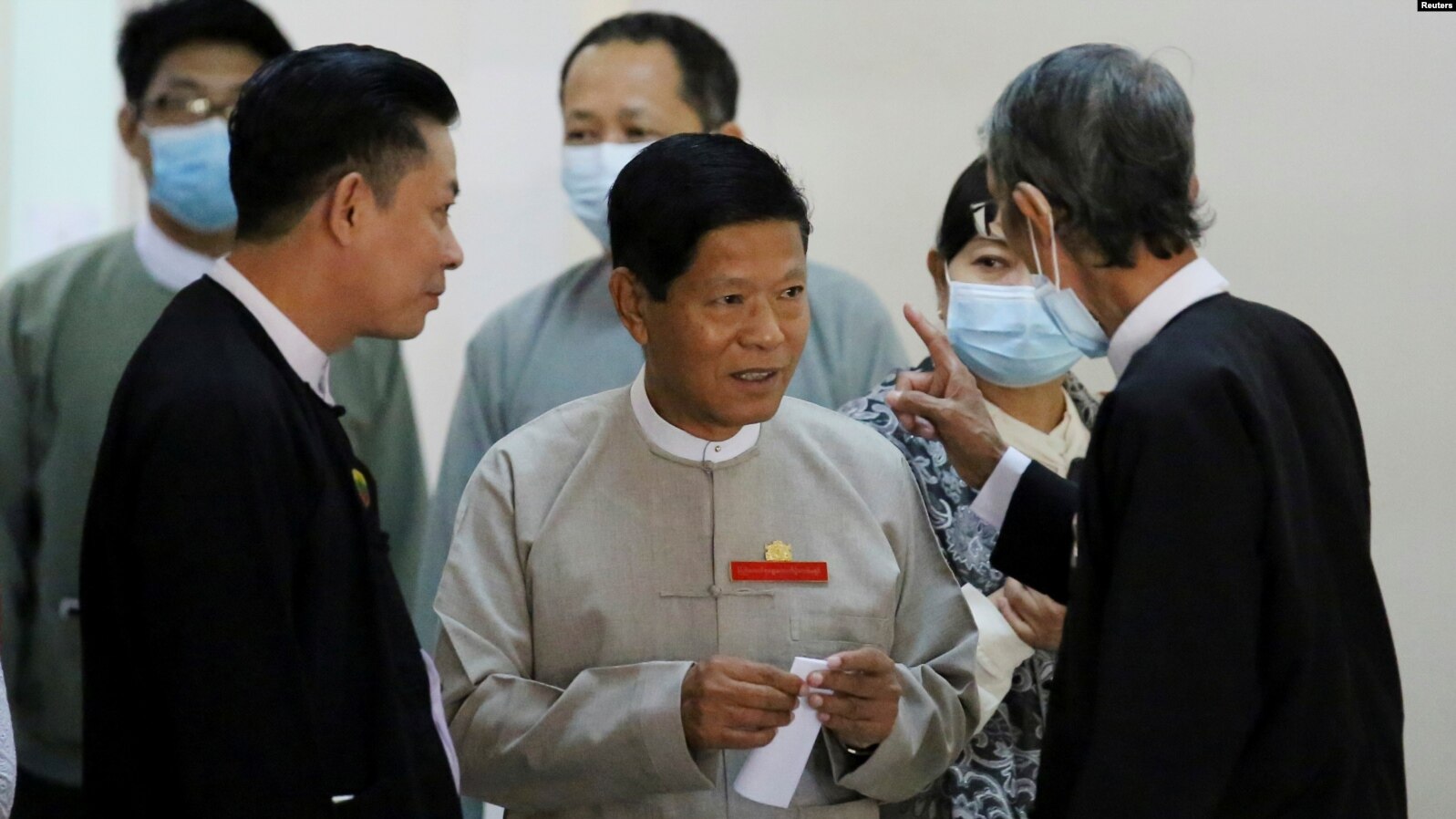
while seeing some political party representatives and the UEC chairman U Thein Soe
It is also said that the recommendation document for the successful holding of a multi-party democratic general election must be submitted to the UEC by the political parties after they meet with the special representative on 12th January.
If it is a party that will compete nationwide, it must submit a recommendation document relating to the nationwide and if it is a party that will compete in a region or a state, particulars relating to a state or a region must be submitted to the UEC, according to the political parties.
After the new enactment of the Political Parties Re-Registration Act, there are 45 political parties that are registered by the UEC on 31st January, 2024.

- By CNI
- Category: English Section
- Hits: 1268
CNI News
5 January 2024
The present time is an important period for the restoration of Special Region (1), said U Pheung Daxun on 1st January 2024 in his New Year Message.
U Pheung Daxun has taken responsibilities as general secretary of the Myanmar National Truth and Justice Party, as the Commander in Chief of the Myanmar National Democratic Alliance Army (MNDAA) and as the chairman of the Shan State Special Region (1) Administrative Committee.
" Regaining power of the Special Region-1 of Shan State, Myanmar is just the first step in our national process. We have made preparations for party, administrative committee, military construction system, political system, administrative system and cadre training. But our forces have to inherit the frugal tradition of old revolutionists and their ways to do and must work hard all out together with the people for the regional development on the basis of the constitution of the Special Region-1." said U Pheung Daxun.
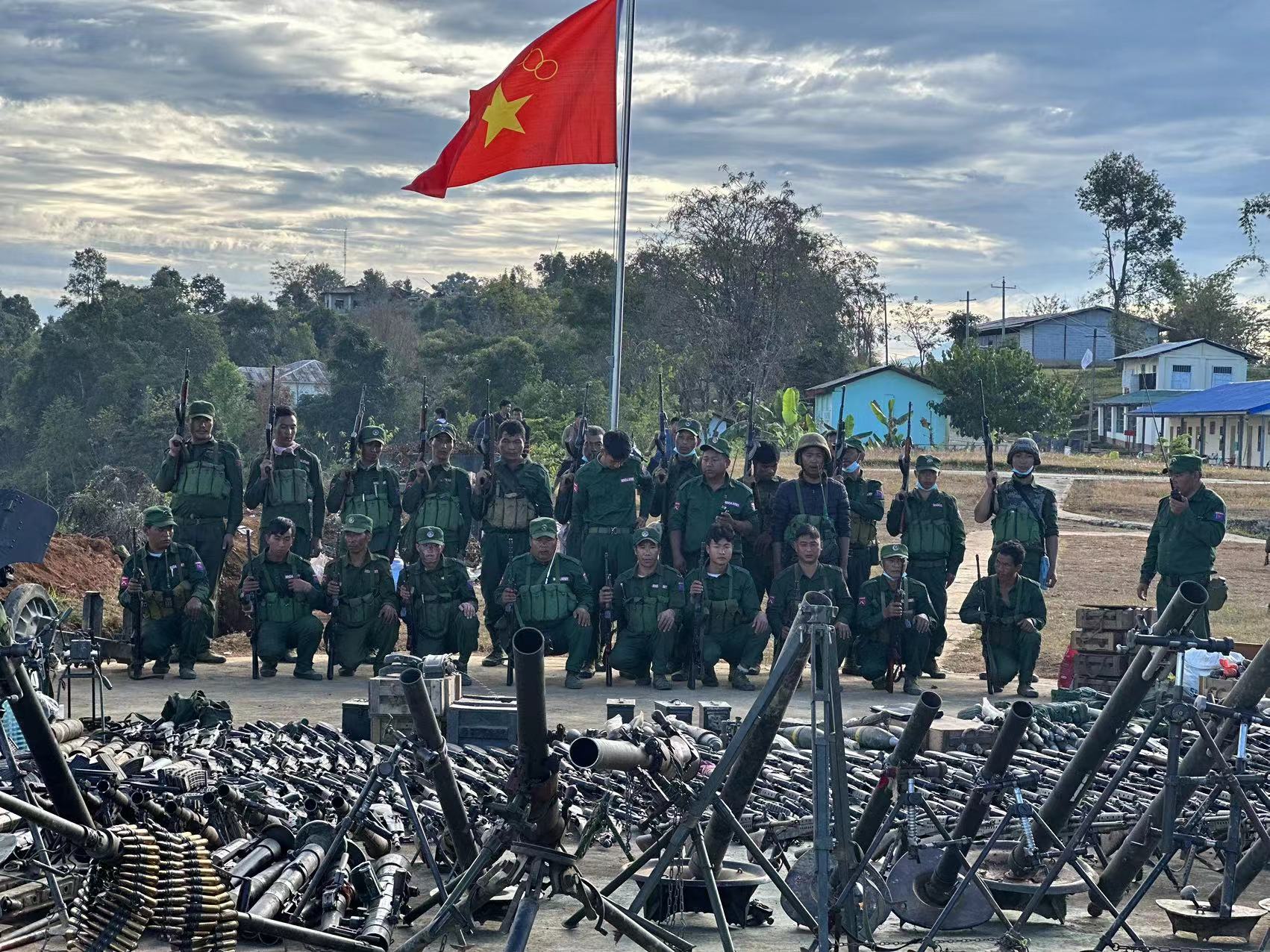
While seeing the MNDAA force
After that, however hard the future of Kokang region was, the special region administrative committee would not allow online gambling and narcotic drug industries.
The people should not be oppressed. Corruption and bad habits that arose during the period when the puppet organization ruled would be absolutely eradicated, he said.
" What I can responsibly tell all the soldiers and civilians within the special region-1, the Myanmar National Truth and Justice Party (MNTJP), the MNDAA and the Special Region-1 Administrative Committee promise to make the special regional-1 peacefully develop. Because the present time is important for the restoration of the Special Region-1, if all the forces are able to overcome the final difficulties, the final success will arrive in the hands of the people, which I believe fully." said U Pheung Taxun.
It was strange that U Pheung Taxun's 2024 New Year Message did not contain anything about the federal charter and the NUG. The main objective of the Operation-1027 was to regain the Special Region-1 of the MNDAA and the operation was not obviously related to the NUG's Spring Revolution, pointed out political commentators.
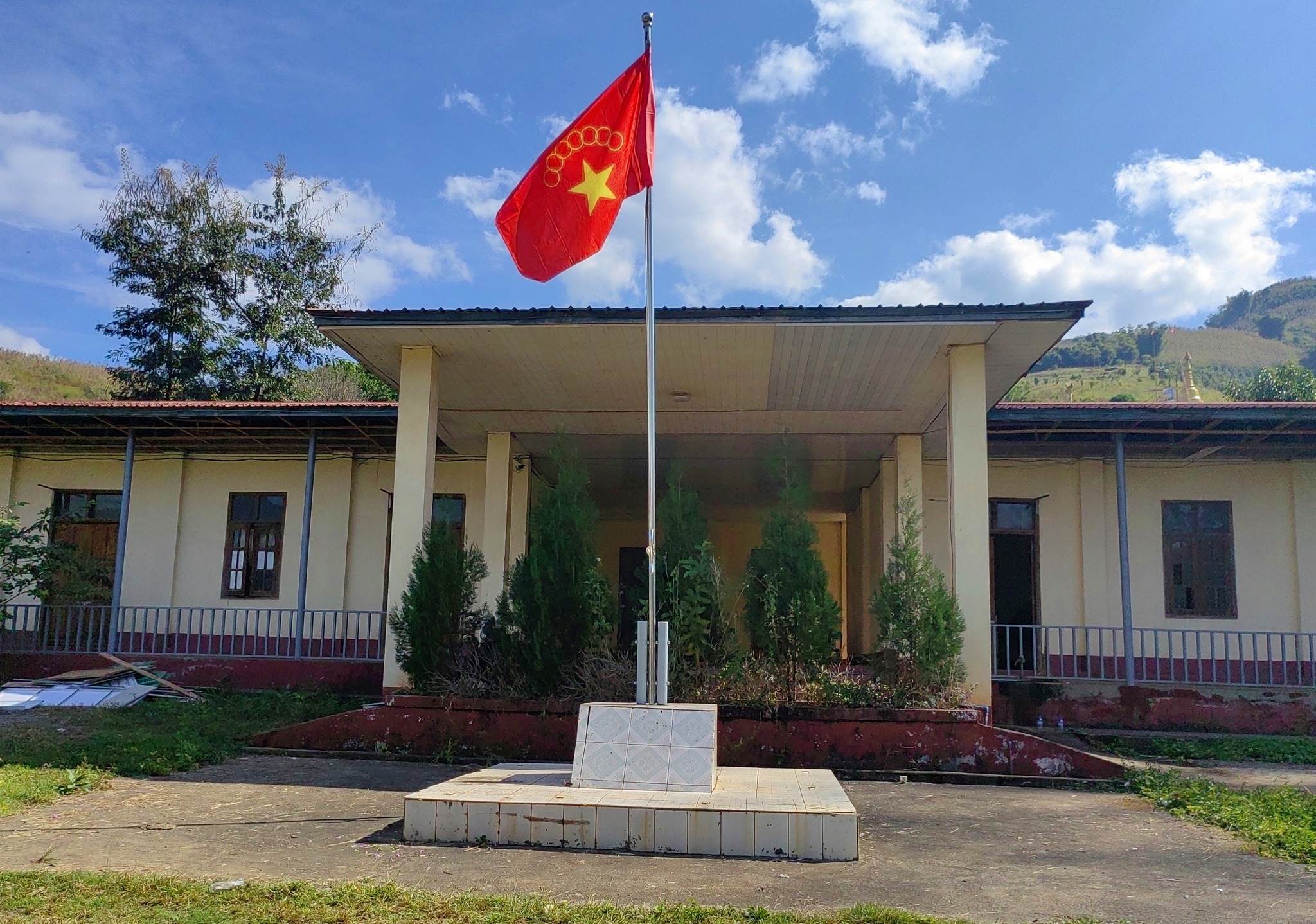
While raising the flag of MNDAA in a town occupied by MNDAA
Even though U Pheung Daxun said that he would rebuild the Special Region (1), he did not reveal which regions would be consolidated and rebuilt as Special Region (1).
The Kokang force led by U Pheung Kya-shin, father of U Pheung Daxun, made peace with the State Peace and Development Council in 1989 and Laukkai and Kon Kyan regions designated as the Special Region (1) after which the Kokang force was allowed to rule.
However, when the Tatmadaw pressured the Kokang force to convert to militia or border guard force in 2009, the battles broke out between the Tatmadaw and the Kokang force. And then, the Kokang force had to leave the Special Region (1).
The MNDAA launched the Operation-1027 on 27th October 2023 and waging battles to capture the Tatmadaw camps and towns. The MNDAA has captured Konkyan, Phaung Sai, Chin Shwe Haw, Mong Ko, Hsenni and is launching an offensive in order to capture Kutkai and Laukkai.
According to the Section-56(e) of the 2008 Constitution, Konkyan and Laukkai Townships have been designated as the Special Region (1).

- By CNI
- Category: English Section
- Hits: 769
CNI News
5 January 2024
The economic growth of a country can assessed by looking the development of its Micro, Small and Medium Enterprises (MSME) and at present, MSMEs within Myanmar have needed market and technology support, businessmen told CNI News.
Although successive governments helped MSMEs by issuing loans, the development of MSMEs is still low.
Without receiving market and technology support, getting loans alone would not be convenient for MSME businessmen, U Thet Zaw, an economic commentator told CNI News.
" Frankly speaking, SMEs need market and technology support. Market and raw materials must be supported and it's necessary to better the production processes so that SMEs can improve. Lending money alone alone won't produce any good result. In due course, a lot of debts will be left with borrowers." he said.
MSMEs are important to economically underdeveloped countries like Myanmar. However, most of MSMEs do not have market at present. So, their productivities have been reduced and some MSMEs have stopped.
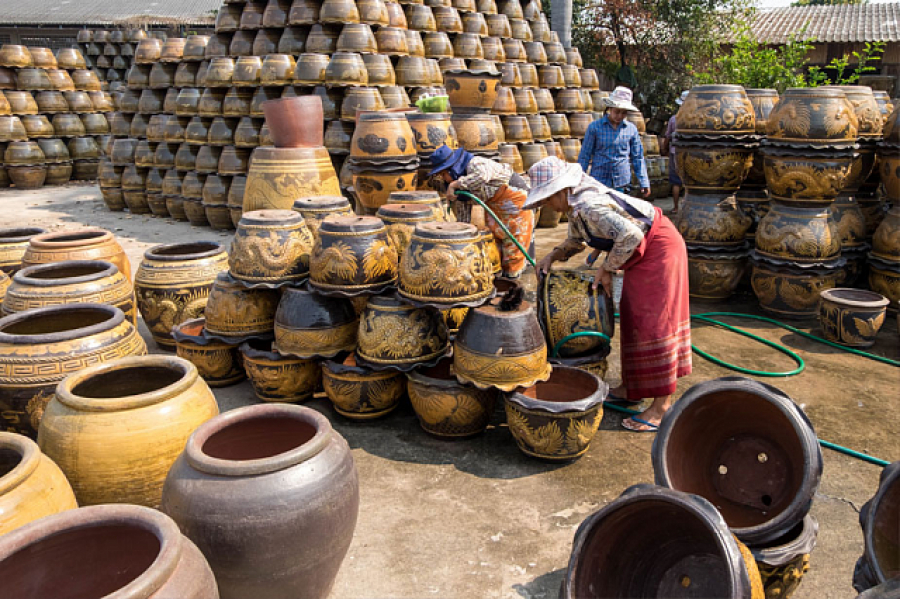
While seeing the glazed earthen jar industry
Such a reduction in growth is directly related to the country's economic decline. 99 percent of businesses in Myanmar are MSMEs and their growth and decline will be directly related to the country's economy.
Although loans are being lent to MSMEs, some enterprises have not got the loans. As a consequence of the current lack of territorial stability, due to the difficulty of transportation, the rate of production and the rate of consumption were not equal, an official from Kyi Pyar egg poultry farming business in Mandalay Region told CNI News.
" Some businessmen don't get the loans. Loans are not issued to some micro and small enterprises. Mainly, there are no markets. There are still production places. But to send the products to places where there are consumers, routes are being closed. Next, people don't have enough money to buy and eat. So, consumption is decreasing. Moreover, because the transportation is difficult between the production places and consumer places, products are piling at the production places. So, the prices have gone up at the places where there are no products. As the production places are stable, production can be regularly conducted." he said.
Moreover, there are difficulties to get import licenses for some MSMEs to get raw materials from abroad.
Successive governments were not able to make MSMEs successful. Myanmar has no ability to compete with regional countries in MSMEs. In fact, MSMEs in Myanmar are finding it difficult to exist anymore.
The long-term sustainability of MSMEs should be taken into account in order to revive the country's economy, pointed out businessmen.

- By CNI
- Category: English Section
- Hits: 834
CNI News
4 January 2024
The National Solidarity and Peacemaking Negotiation Committee (NSPNC) and the three brotherhood northern alliance (MNDAA, TNLA and AA) will meet for the third time in Kumming, China, according to individuals close to both sides.
The meeting will be held on from 7th to 9th January. The first meeting was held during the first week of December in 2023, and the second, on 23rd and 24th December, 2023.
It was reported that the meeting was ten minutes long only and no agreement was reached from the meeting. However, the meetings lasted more than 50 minutes and at the first meeting, both sides agreed to temporary ceasefire and at the second meeting, discussion was conducted about demanding territories, individuals close to both sides told CNI News.
" The two times of meeting have been conducted and the third meeting is to be held. The two meetings lasted over 50 minutes. The first time was to cease fire and the Three Brotherhood Alliance signed." they said.
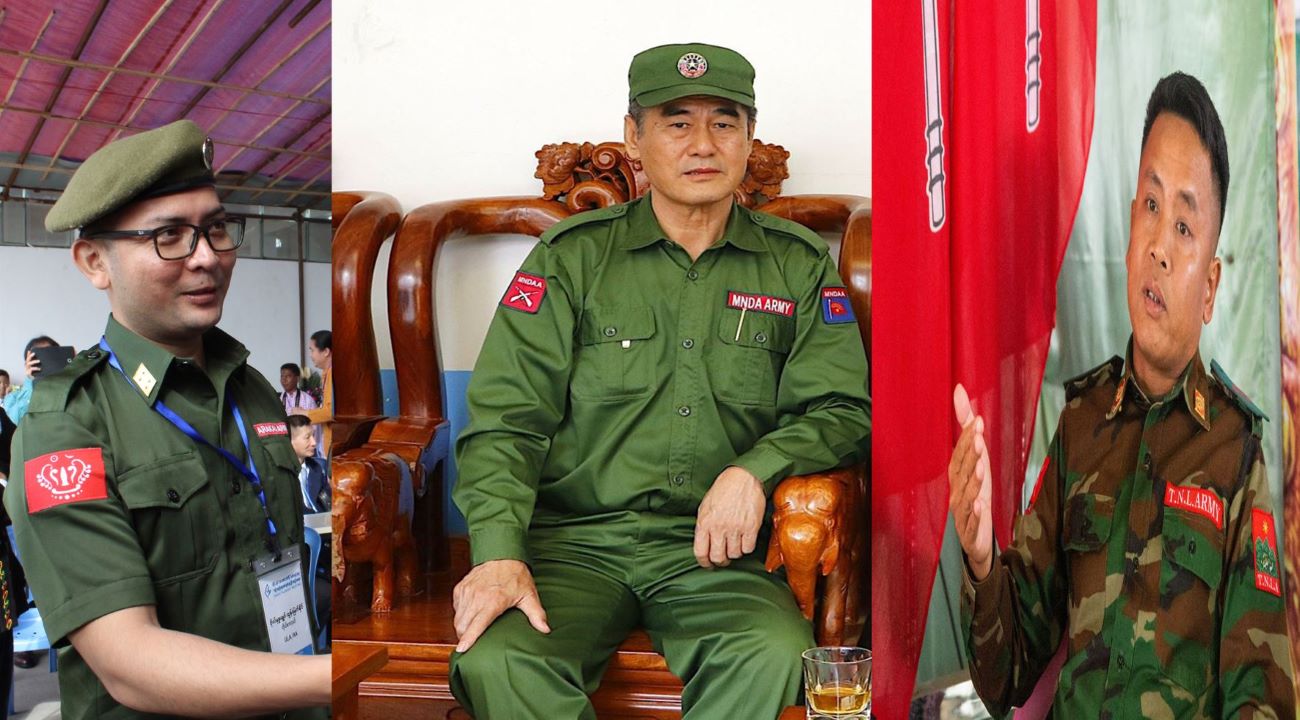
While seeing leaders from the Three Brotherhood Alliance
In cooperation with the Bamar People Liberation Army (BPLA), the People's Liberation Army (PLA), PDFs led by Bo Nagar, Mandalay People's Defense Force (MDY-PDF) and the Karenni National Defense Force (KNDF), the Three Brotherhood Alliance launched the Operation-1027 on 27th October 2023.
The Three Brotherhood Alliance and its allies have captured the Tatmadaw camps in Namkham, Thibaw, Hsenni, Chin Shwe Haw, Kyukote, Nangsan, Mang Ton, Namtu, Laukkai, Kutkai, Mong Ngor, Phaung Sai, Mong Ko Townships and controlled some townships.
The NSPNC and the Three Brotherhood Alliance will meet in China on from 7th to 9th January, 2024 for the third time for the cessation of the battles and for the regional stability.

- By CNI
- Category: English Section
- Hits: 1664
CNI News
4 January 2024
U Pheung Daxun, Commander in Chief of the Myanmar National Democratic Alliance Army (MNDAA), released a New Year Message on 1st January, 2024 and explained about the objectives to the MNDAA forces.
He talked about cracking down on online gambling, reconstruction of the Special Region-1, situation relating to the ability to capture the Tatmadaw camps and how to govern the Special Region-1 after it was reconstructed.
However, he did not say anything about building a federal union which everyone wanted to build, the federal charter laid down by the National Unity Consultative Council (NUCC), an advisory body of the National Unity Government and the Spring Revolution.
" Regaining power of the Special Region-1 of Shan State, Myanmar is just the first step in our national process. We have made preparations for party, administrative committee, military construction system, political system, administrative system and cadre training. But our forces have to inherit the frugal tradition of old revolutionists and their ways to do and must work hard all out together with the people for the regional development on the basis of the constitution of the Special Region-1." said U Pheung Daxun.
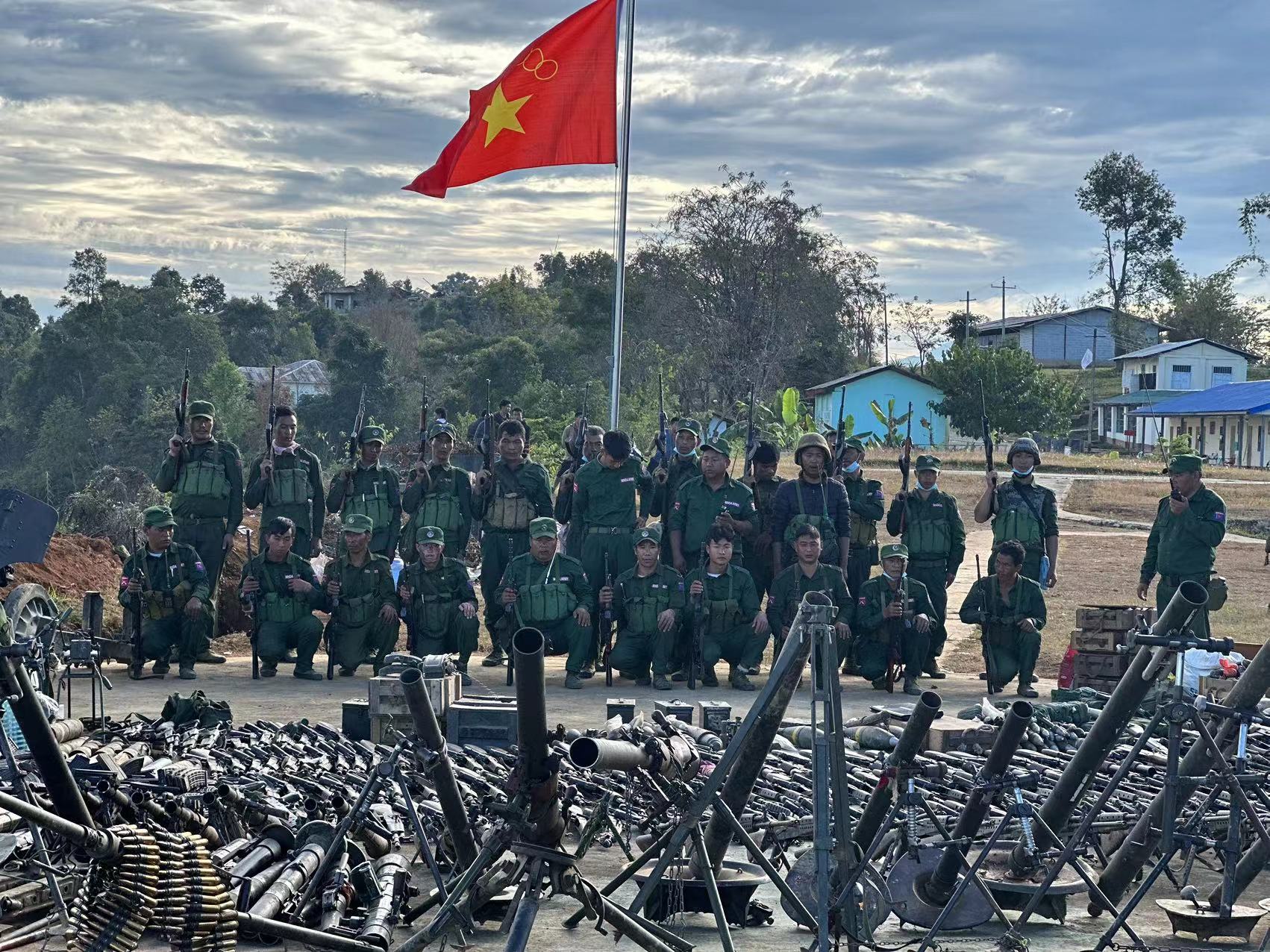
While seeing the MNDAA forces
After that, however hard the future of Kokang region was, the special region administrative committee would not allow online gambling and narcotic drug industries. The people should not be oppressed. Corruption and bad habits that arose during the period when the puppet organization ruled would be absolutely eradicated, he said.
" What I can responsibly tell all the soldiers and civilians within the special region-1, the Myanmar National Truth and Justice Party (MNTJP), the MNDAA and the Special Region-1 Administrative Committee promise to make the special regional-1 peacefully develop. Because the present time is important for the restoration of the Special Region-1, if all the forces are able to overcome the final difficulties, the final success will arrive in the hands of the people, which I believe fully." said U Pheung Taxun.
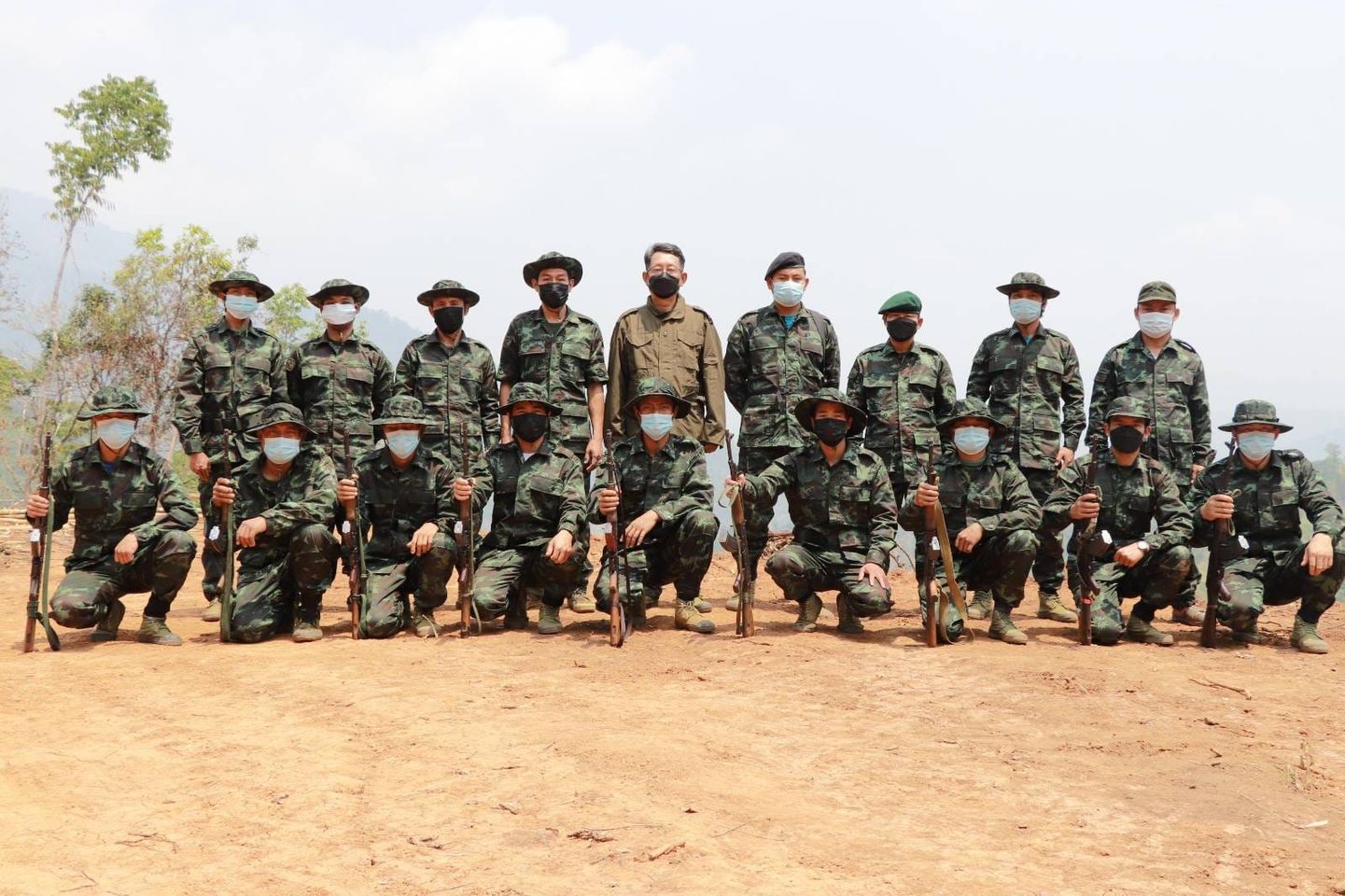
While seeing the PDF forces
It was strange that U Pheung Taxun's 2024 New Year Message did not contain anything about the federal charter and the NUG.
The main objective of the Operation-1027 was to regain the Special Region-1 of the MNDAA and the operation was not obviously related to the NUG's Spring Revolution, pointed out political commentators.

- By CNI
- Category: English Section
- Hits: 675
CNI News
4 January 2024
Conclusions and discussions are widely arisen among the political and diplomatic circles in relation to the question whether Daw Aung San Suu Kyi could be released soon after the Independence Day.
Daw Aung San Suu Kyi's release depended on a compromise with the State Administration Council, Col.Khun Okka, an EAO leader, told CNI News.
DASSK, leader of the National League for Democracy (NLD) who has been detained in Naypyidaw - her release depended on a compromise with the State Administration Council, Col.Khun Okka, an EAO leader, told CNI News.
" A review of Daw Aung San Suu Kyi's current situation and her ability to participate, a compromise based on these things has some problems, I think. If the problems were solved, she would be able to participate in the restoration of the country. If the compromise was not convenient, the current position would go on, I think." he said.
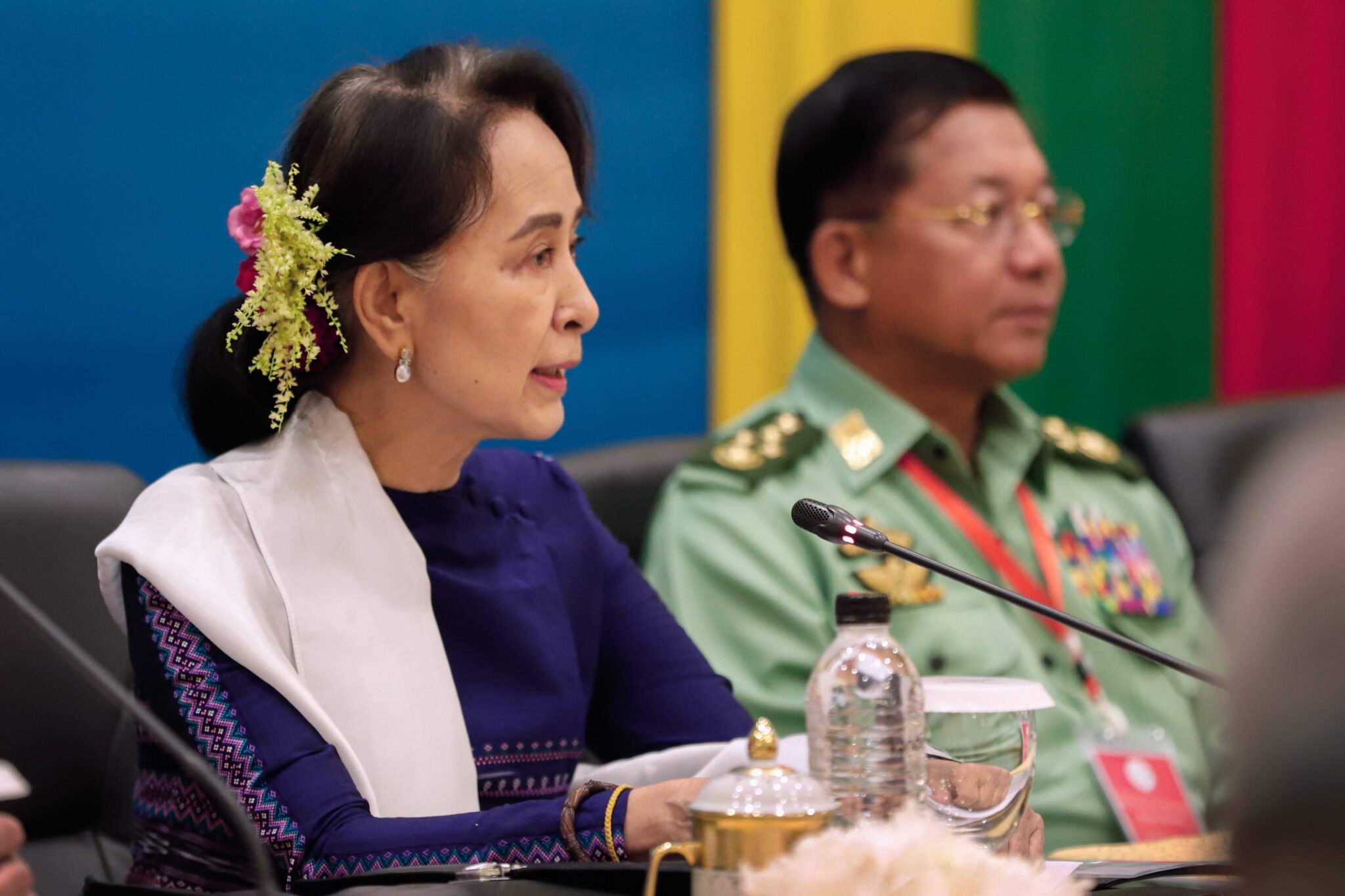
DASSK was serving 33 years in prison for 19 cases. However, she was pardoned for five years of amnesty for five cases on 1st August 2023.
So, she still has 27 years to serve in prison. Although they hoped to release her, she might find it difficult to re-enter the Myanmar political world, U Myo Kyaw, spokesperson of the United Nationalities Alliance (UNA), told CNI News.
" In my opinion, a lot of challenges will be waiting for her if she re-enter the political world. If a very old woman like her re-enter the political world, she will find it difficult at a time like this. Even if she was released, she shouldn't re-enter the political world. If she re-entered the political world, would her policy be consistent with that of the National Unity Government/CRPH? If the problems arose among them, her dignity could be affected, I think." he said.
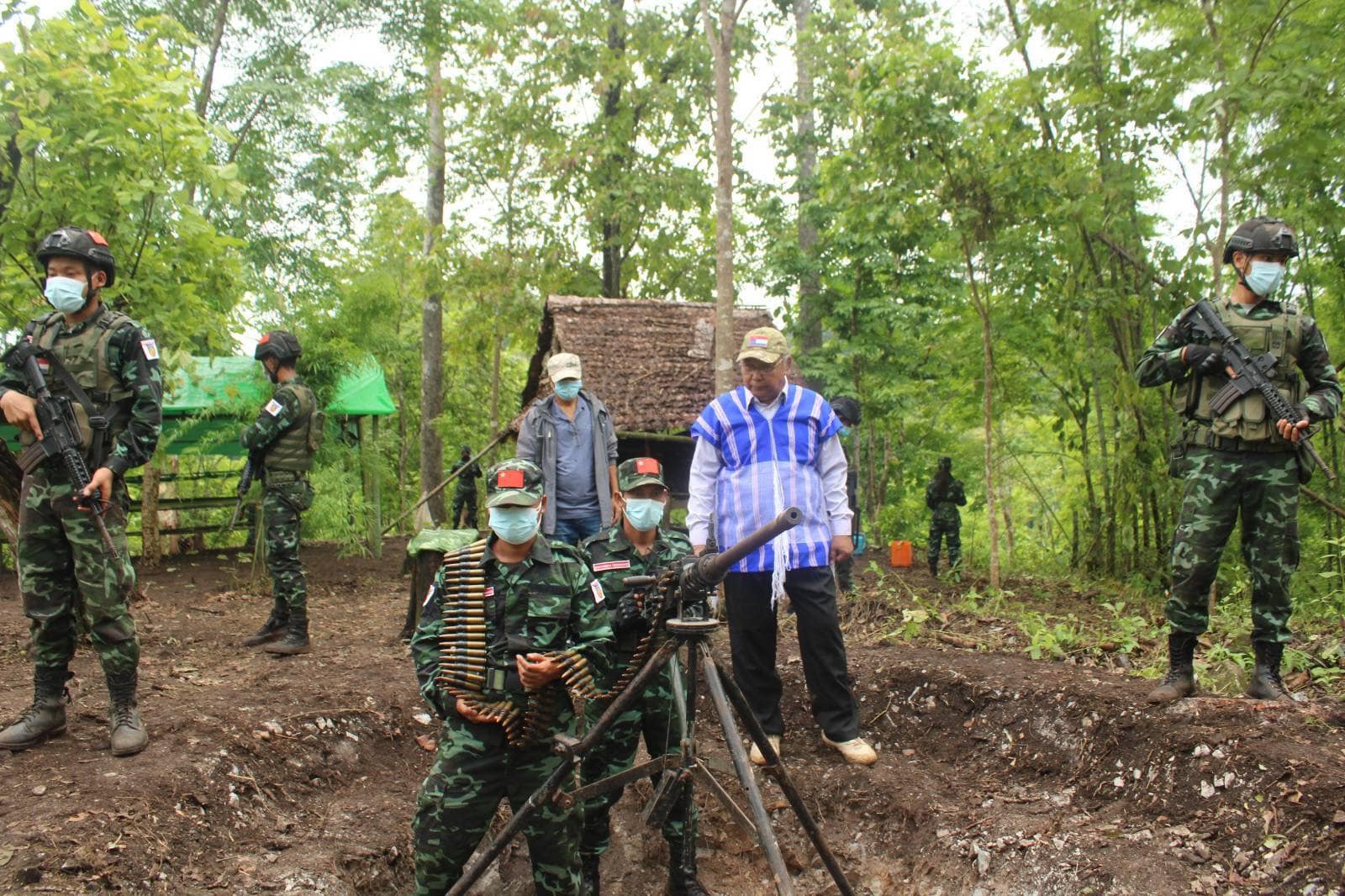
While seeing the NUG and PDF troops
Pieces of news saying that DASSK could be released after the Independence Day or she could be sent back to house arrest are arising among diplomatic circles local and abroad.
Because of political changes that arose on 1st February 2021, some members of the NLD party including the NLD leaders, DASSK and U Win Myint have been detained.
On the other hand, NLD MPs and those who are demanding democracy are fighting against the Tatmadaw to overthrow the SAC after forming the NUG and the People's Defense Forces.

- By CNI
- Category: English Section
- Hits: 717
CNI News
3 January 2024
The statement released by the National Unity Government that it would go on supporting the one China policy would not produce a good result in the diplomatic relations with the democratic countries, pointed out Myanmar politicians.
There have been historically close relations between Myanmar and China, and China is a powerful country which is an important country especially to Myanmar, the NUG stated on 1st January 2024.
" Myanmar and China share a border that is more than 2,000 kilometers long and they are neighboring countries that will have to live together as long as the world exists and Myanmar will build a kinship relation between the two countries. And Myanmar will always strive to stand as a good neighboring country for China and will go on supporting the one China policy." said the NUG.
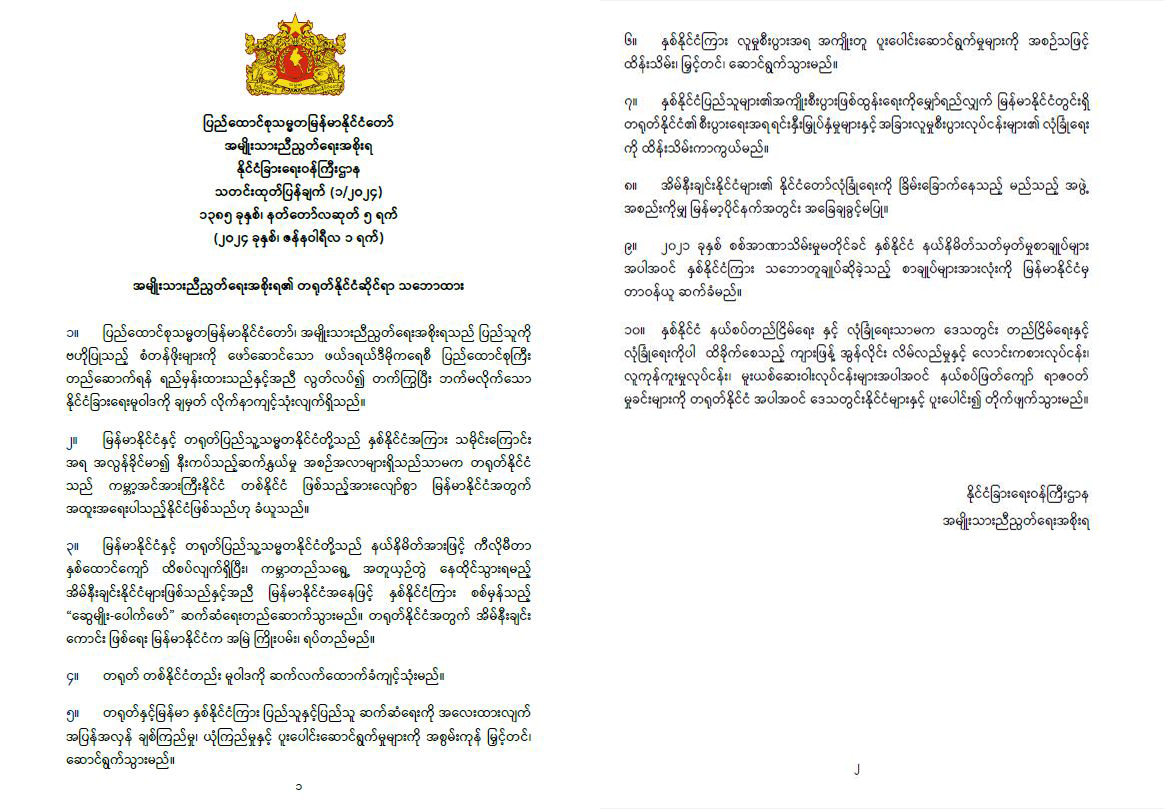
While seeing the statement released by the NUG
The NUG's announcement that it would continue supporting the one China policy would not produce a good result, U Myo Kyaw, spokesperson of the United Nationalities Alliance (UNA) told CNI News.
" It doesn't matter if the NUG didn't reveal that at a time like this. Because while we are fighting against the military dictator, our common enemy, democratic countries are standing as our allies. While we are collecting strength from western democratic countries, putting a point in the statement that goes against Taiwan, a friend of these democratic countries as the fourt point won't produce a good result for us, I think." he said.
Moreover, looking forwards to the interest development for the people from the two countries, the Chinese investment and other social economic industries would be protected, said in the statement.
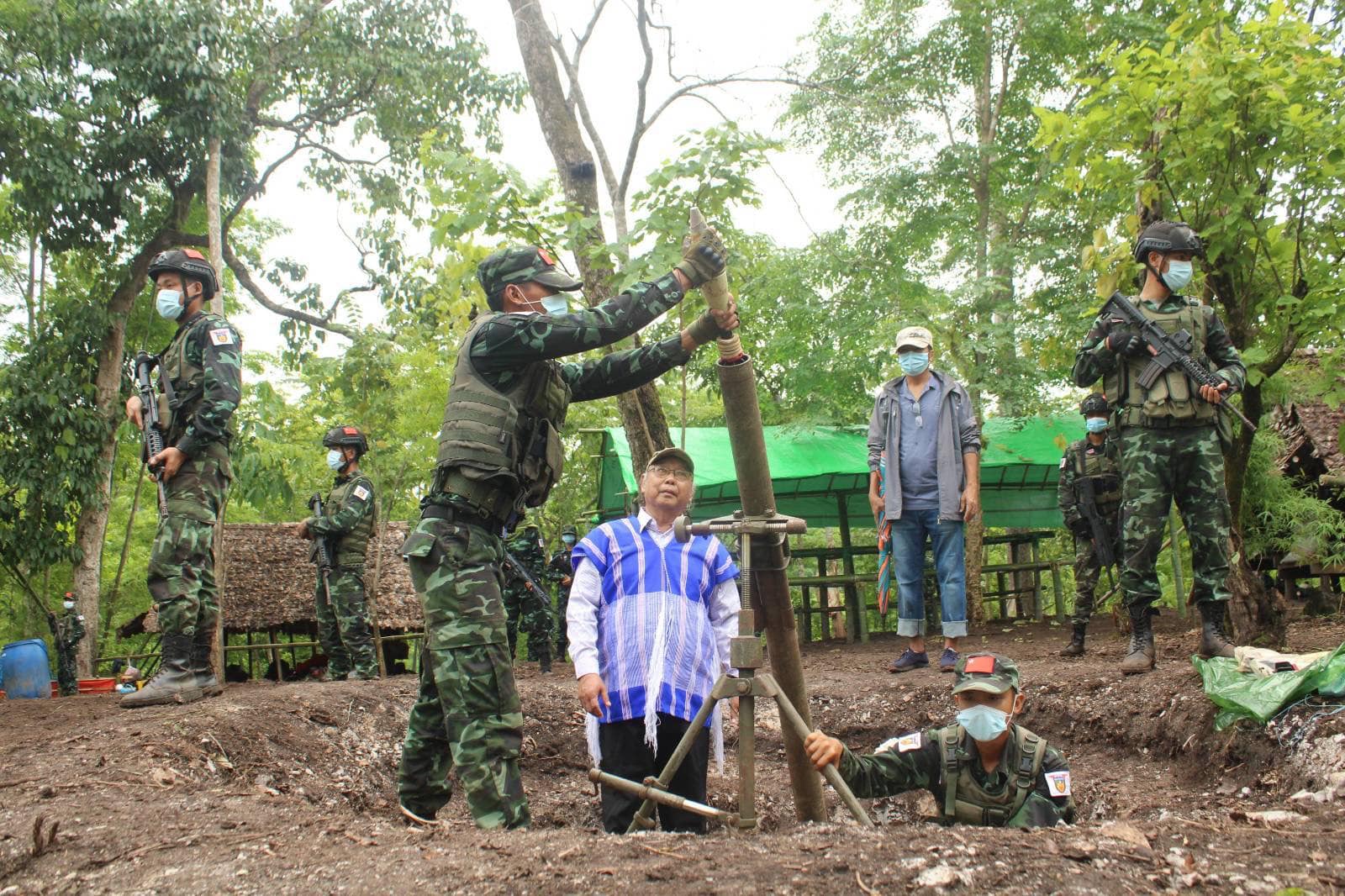
While seeing the NUG's People's Defense Force
Successive Myanmar governments supported the one China policy, U Kyi Myint, a Myanmar political commentator, told CNI News.
" Successive Myanmar governments supported the one China policy. At present, the State Administration Council supports the one China policy. But the SAC has a trade relations with Taiwan. The trade value is by the US billion dollars like under the NLD government. The US also has recognized the policy that Taiwan is under China. But the US is demanding China to recognize that Taiwan is going with a democratic system. Myanmar doesn't demand like that. But under the current military council, the relation between Myanmar and Taiwan has even increased more." he said.
While the NUG is striving to overthrow the Tatmadaw government, Taiwan, Hong Kong and Uyghur Muslims in Xinjiang Province, China are also trying to liberate their regions.



